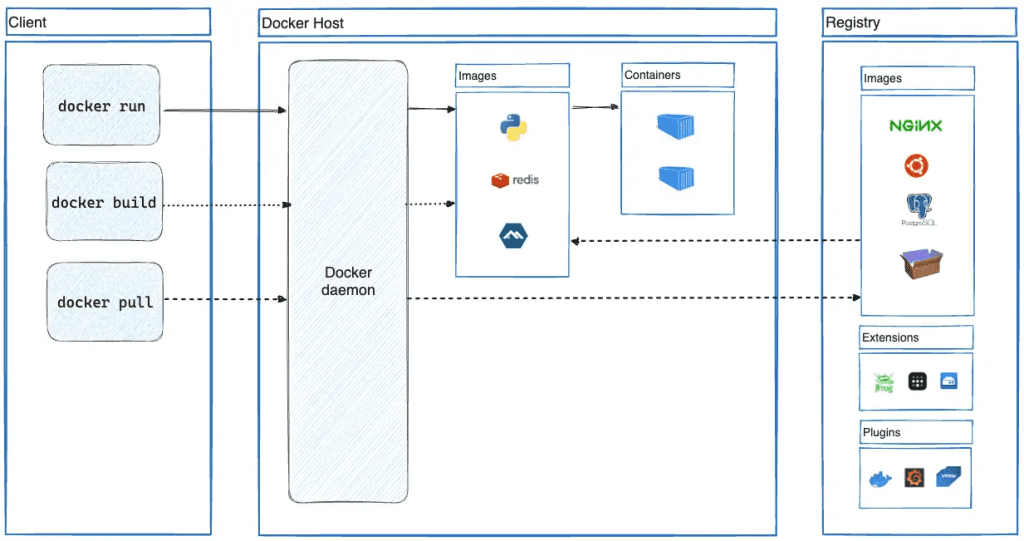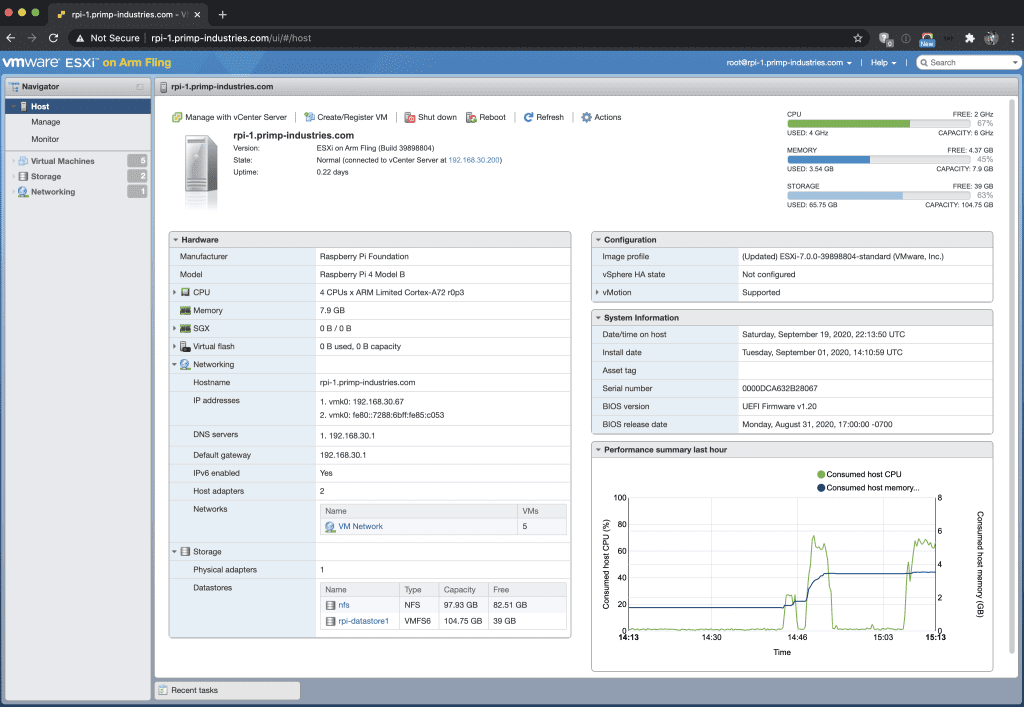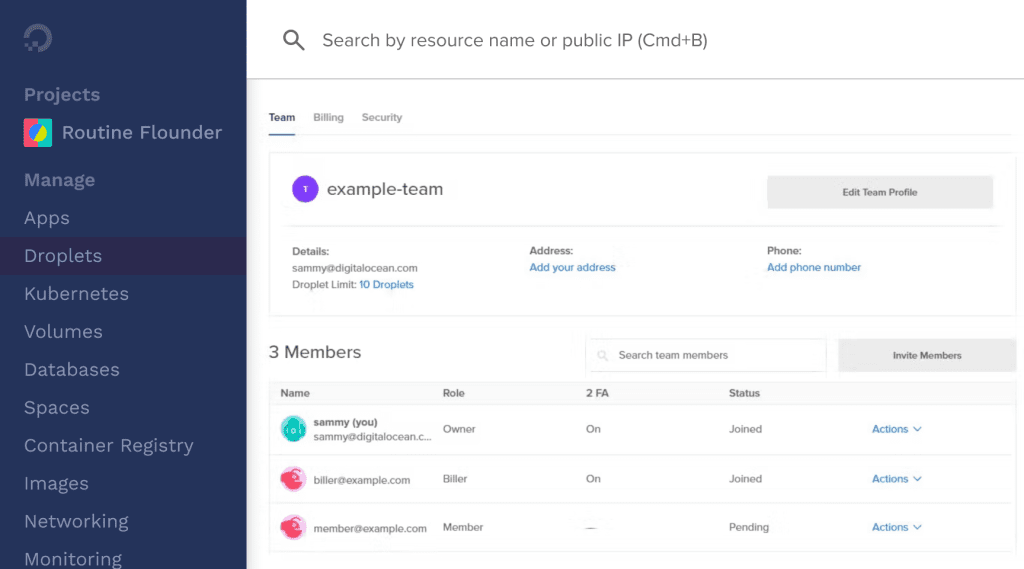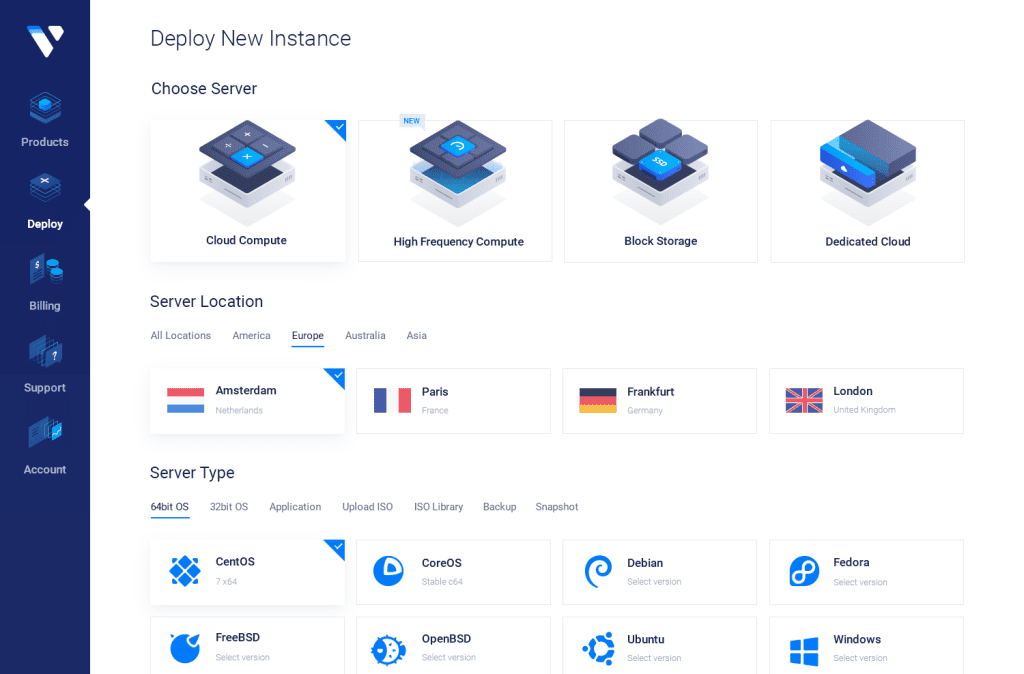Key Takeaways
- Empowerment Through Control: Virtual Private Servers (VPS) provide users with unprecedented control, allowing customization of operating systems, software, and server configurations to meet unique needs.
- Myth-Busting for Informed Decisions: Debunking common misconceptions surrounding VPS, this blog equips users with accurate information on affordability, scalability, and resource allocations for confident hosting decisions.
- Tailored Solutions for Every Need: Explore the diverse types of VPS hosting, from managed and unmanaged to cloud, SSD, and Windows VPS. Each type caters to specific requirements, ensuring a tailored solution for every digital venture.
In the ever-evolving landscape of the digital era, understanding the intricate mechanisms that power our online experiences is crucial.
Among the myriad technologies shaping this landscape, Virtual Private Servers (VPS) stand out as a powerful force, providing users with unparalleled control, scalability, and security in the virtual realm.
Join us on this enlightening journey as we delve into the depths of VPS, unraveling the mysteries behind its existence, exploring its functionalities, and discovering the pivotal role it plays in modern web hosting.

Decoding Virtualization: The Foundation of VPS Mastery
To truly grasp the essence of Virtual Private Servers, one must first unravel the magic of virtualization.
In this segment, we’ll embark on a journey into the heart of virtualization, demystifying its core concepts and showcasing how it serves as the bedrock upon which VPS is built.
As we unravel the layers of virtualization, you’ll gain a profound understanding of its transformative impact on server management and the digital ecosystem at large.
Rising Above the Rest: VPS vs. Shared Hosting and Dedicated Servers
In a world where hosting options abound, understanding the nuances that differentiate Virtual Private Servers from shared hosting and dedicated servers is paramount.
We’ll meticulously compare these hosting solutions, highlighting the unique advantages that make VPS the go-to choice for many businesses and individuals.
Whether you’re a seasoned webmaster or a novice navigating the digital landscape, this section will illuminate the path toward optimal hosting solutions.
The Inner Workings: Unveiling the Mechanisms of VPS
How does a Virtual Private Server operate?
What distinguishes it from its hosting counterparts?
We will dissect the intricate architecture of VPS, unraveling the allocation of resources and the pivotal role played by the hypervisor.
By comprehending the inner workings, you’ll gain insight into how VPS delivers the perfect blend of isolation, performance, and resource management, fostering an environment conducive to hosting success.
Elevating Your Experience: Key Features that Define VPS Hosting
VPS hosting isn’t just a step above traditional solutions; it’s a leap into a realm of unparalleled customization, scalability, and security.
Here, we’ll explore the distinguishing features that set VPS apart, offering users the ability to tailor their hosting environment to suit specific needs.
From resource allocation to security measures, understanding these features is paramount for anyone seeking a hosting solution that adapts to their unique requirements.
The VPS Universe: Navigating Different Hosting Realities
The realm of VPS hosting is diverse, offering various options catering to different needs.
In this segment, we’ll navigate the intricacies of managed versus unmanaged VPS, the choice between Linux and Windows VPS, and the evolving landscape of cloud-based versus traditional VPS solutions.
By the end, you’ll have a comprehensive understanding of the choices at your disposal and the factors influencing your decision-making process.
This is just the beginning of our exploration into the realm of Virtual Private Servers. Buckle up as we journey deeper, unraveling misconceptions, providing insights into setting up your own VPS, and offering tips for selecting the ideal hosting provider.
Let’s embark on this enlightening odyssey into the digital cosmos of VPS and discover the transformative power it holds for your online presence.
But, before we venture further, we like to share who we are and what we do.
About AppLabx
From developing a solid marketing plan to creating compelling content, optimizing for search engines, leveraging social media, and utilizing paid advertising, AppLabx offers a comprehensive suite of digital marketing services designed to drive growth and profitability for your business.
AppLabx is well known for helping companies and startups use website marketing to drive web traffic to their websites and web apps.
At AppLabx, we understand that no two businesses are alike. That’s why we take a personalized approach to every project, working closely with our clients to understand their unique needs and goals, and developing customized strategies to help them achieve success.
If you need a digital consultation, then send in an inquiry here.
What Are Virtual Private Servers (VPS) And What Do They Do?
- Understanding Virtualization
- What Sets VPS Apart
- How VPS Works
- Key Features of VPS
- Types of VPS Hosting
- Common Misconceptions about VPS
1. Understanding Virtualization
In the dynamic world of web hosting, virtualization serves as the cornerstone of transformative technologies, shaping how servers operate and facilitating the rise of Virtual Private Servers (VPS).
Let’s embark on a journey into the realm of virtualization, unravelling its core concepts and showcasing its pivotal role in modern server management.

Definition and Significance of Virtualization
Virtualization, in essence, involves the creation of virtual instances or environments within a physical server.
This groundbreaking technology allows multiple operating systems to run on a single physical machine simultaneously, enabling efficient resource utilization and enhanced server capabilities.
Example: Consider a physical server running multiple virtual machines (VMs), each functioning as an independent server with its own operating system.
This virtualization technique ensures that applications on one VM remain isolated from those on another, fostering enhanced security and flexibility.
Types of Virtualization
Virtualization manifests in various forms, with two primary categories: hardware virtualization and software virtualization.
Hardware Virtualization
Hardware virtualization involves the creation of virtual machines that mimic the underlying physical hardware.
This is achieved through a hypervisor, a layer of software that manages the allocation of resources and facilitates communication between the virtual and physical layers.
Example: Hypervisors like VMware ESXi and Microsoft Hyper-V enable the creation of multiple VMs on a single physical server, each with its own set of resources and operating system.

Software Virtualization
Software virtualization, on the other hand, occurs at the application level. It allows for the virtualization of individual applications or components, providing a more granular approach to resource allocation.
Example: Containers, a form of software virtualization, use lightweight, portable environments to run applications.
Docker is a widely used containerization platform, offering developers a consistent environment across different stages of the development process.

Benefits of Virtualization in Server Management
Virtualization offers a plethora of advantages, making it a pivotal component in modern server management strategies.
Resource Optimization
Virtualization enables efficient use of server resources by consolidating multiple virtual instances onto a single physical server.
This consolidation reduces hardware costs, minimizes energy consumption, and optimizes resource utilization.
Scalability and Flexibility
Virtualization allows for easy scalability as additional virtual instances can be created without the need for physical hardware.
This flexibility is particularly beneficial for businesses experiencing varying workloads.
Enhanced Disaster Recovery
Virtualization simplifies disaster recovery by encapsulating entire virtual machines into portable files.
This facilitates swift and seamless recovery in the event of hardware failures or other disasters.
Example: In the case of a hardware failure, a virtual machine can be quickly migrated to another host server, minimizing downtime and ensuring business continuity.
Unmatched Server Hosting Solutions with AppLabx
At AppLabx, we take pride in being the go-to digital agency in Singapore for comprehensive server hosting solutions.
In an era where a robust online presence is non-negotiable for businesses, our dedicated team at AppLabx stands out as the ideal partner to elevate your server services to new heights.
Cutting-Edge Technology Infrastructure
Our state-of-the-art server hosting services are built on cutting-edge technology infrastructure, ensuring seamless performance, scalability, and security for your business. Whether you are a startup or an established enterprise, our hosting solutions are tailored to meet the unique demands of your online presence.
Strategic Promotion for Maximum Visibility
Beyond hosting, AppLabx excels in strategic promotion to maximize the visibility of your server services. Our digital marketing experts employ a holistic approach, leveraging the latest trends and platforms to ensure your offerings are showcased to the right audience. From social media campaigns to targeted SEO strategies, we are committed to enhancing your brand’s online footprint.
Proven Track Record
What sets AppLabx apart is our proven track record of helping businesses thrive in the digital landscape. We have successfully collaborated with a diverse range of clients, optimizing their server services and driving measurable results. Our commitment to excellence is reflected in the success stories of businesses that have entrusted us with their digital journey.
Client-Centric Approach
At the core of our ethos is a client-centric approach. We believe in forging strong partnerships with our clients, understanding their unique goals, and tailoring our services to exceed expectations. AppLabx is not just a service provider; we are your digital ally, dedicated to propelling your server hosting services to unparalleled success.
When it comes to server hosting and promotion, AppLabx emerges as the best digital agency in Singapore. Elevate your online presence with our innovative solutions, and let us be the catalyst for your digital success.
If you need a digital consultation, then send in an inquiry here.
2. What Sets VPS Apart
In the ever-evolving landscape of web hosting, Virtual Private Servers (VPS) stand as a beacon of innovation, offering a multitude of advantages that set them apart from traditional hosting solutions.
Dive into this in-depth exploration to uncover the distinctive features that make VPS the go-to choice for businesses and individuals aiming for unparalleled control, scalability, and security in their online ventures.

Resource Allocation and Isolation: Tailored Performance for Every Virtual Instance
Experience a hosting environment where resources are not just shared but intelligently allocated to guarantee optimal performance for each virtual machine.
Dedicated Resources
In VPS hosting, every virtual machine enjoys dedicated resources, including CPU, RAM, and storage.
This ensures that the performance of one website is not compromised by the activities of others on the same server, a common concern in shared hosting.
Isolation of Environments
Unlike shared hosting, where one website’s vulnerabilities can affect others, VPS provides a secure and isolated environment. This isolation minimizes the risk of security breaches, enhancing the overall reliability of the hosting environment.
Example: Consider a scenario where a website on a shared server experiences a sudden surge in traffic, causing strain on server resources. In a VPS setup, this surge would only impact the specific virtual machine, leaving others unaffected.
Scalability and Flexibility: Tailor Your Hosting Environment to Your Needs
VPS empowers users with the flexibility to scale resources up or down based on changing demands, offering an agile hosting solution that adapts to evolving business requirements.
Vertical Scalability
VPS allows for vertical scalability, enabling users to easily upgrade or downgrade their allocated resources. This flexibility is particularly advantageous for businesses experiencing fluctuations in website traffic and resource needs.
Customizable Software and Applications
VPS users have the freedom to install and configure software applications of their choice, granting a level of customization that goes beyond the constraints of shared hosting.
This ability to tailor the hosting environment fosters an ecosystem that aligns precisely with specific business needs.
Example: A business running an e-commerce website on a VPS can seamlessly integrate custom applications and plugins to enhance user experience and streamline online transactions.
Enhanced Security Measures: Safeguarding Your Digital Presence
Security is a paramount concern in the digital landscape, and VPS goes the extra mile to fortify the hosting environment against potential threats.
Isolation Prevents Cross-Contamination
The isolation of virtual environments in VPS significantly reduces the risk of cross-contamination from security breaches.
This ensures that even if one virtual machine is compromised, others remain secure.
Root Access Control
VPS grants users root access, providing complete control over the server environment.
This elevated level of control allows for the implementation of stringent security measures, including custom firewall configurations and security software installations.
With root access, a VPS user can proactively monitor and respond to security threats by promptly implementing security patches and updates, bolstering the overall resilience of their hosting environment.
Performance Optimization: Redefining User Experience
VPS hosting is engineered to deliver superior performance, ensuring that websites load quickly and efficiently, ultimately enhancing the user experience.
Reduced Latency and Faster Loading Times
With dedicated resources and efficient resource allocation, VPS minimizes latency issues and offers faster loading times for websites.
This is critical for retaining visitors and improving search engine rankings.
Google emphasizes the importance of page speed in its search algorithm, with studies indicating that for every second delay in mobile page load, conversions can fall by up to 20%.

Predictable Performance
Unlike shared hosting where the actions of other users on the server can impact performance, VPS provides a predictable and stable performance environment. This predictability is essential for businesses relying on consistent website performance.
Example: Imagine an online retailer running flash sales.

Increased traffic to other websites on the same server in a shared hosting environment could potentially slow down the retailer’s site.
VPS ensures that the retailer’s website maintains optimal performance regardless of external factors.
Cost-Effective Solutions: Maximizing Value for Your Investment
While VPS offers advanced features and performance, it remains a cost-effective solution, providing value for money without the high price tag associated with dedicated servers.
Cost-Efficiency in Resource Usage
VPS allows businesses to pay for the resources they need, avoiding the costs associated with dedicated servers that may exceed their actual requirements.
This makes VPS an economical choice for startups and growing businesses.
Elimination of Hardware Costs
With VPS, there’s no need for businesses to invest in and maintain physical server hardware.
This eliminates upfront hardware costs and ongoing expenses related to server maintenance.
Example: A small business looking to establish an online presence can leverage VPS hosting to benefit from advanced features without the need for a significant initial investment in physical server infrastructure.
Support and Management: Partnering for Success
VPS hosting providers often offer robust support and management services, assisting users in navigating the complexities of server maintenance and ensuring a smooth hosting experience.
Managed VPS Services
For those who prefer a hands-off approach, managed VPS services are available.
Hosting providers handle server maintenance tasks, updates, and security protocols, allowing users to focus on their core business activities.
Technical Support and Assistance
VPS hosting providers typically offer 24/7 technical support, ensuring that users have access to assistance whenever needed.
This level of support is instrumental in addressing issues promptly and minimizing downtime.
Example: Consider a scenario where a business website experiences a sudden surge in traffic. With 24/7 technical support, the VPS user can quickly scale resources and address any potential performance issues, ensuring a seamless online experience for visitors.
3. How VPS Works
Virtual Private Servers (VPS) operate on a sophisticated framework that combines the benefits of virtualization with the precision of resource allocation.
In this detailed exploration, we’ll dissect the mechanics of how VPS works, shedding light on the underlying architecture that powers these versatile hosting solutions.

Virtualization and the Hypervisor: Orchestrating the Virtual Symphony
At the heart of every VPS lies the concept of virtualization, a technology that transforms a single physical server into multiple isolated virtual environments.
The orchestration of this transformation is facilitated by a critical component known as the hypervisor.
Role of the Hypervisor
The hypervisor acts as a virtualization layer, managing and overseeing the allocation of resources to individual virtual machines (VMs).
It ensures that each VM operates independently, with its own dedicated set of resources, effectively creating a virtualized server within the physical server.
Types of Hypervisors
There are two primary types of hypervisors: Type 1 (bare-metal) and Type 2 (hosted).
Type 1 hypervisors run directly on the physical hardware, while Type 2 hypervisors operate on top of an existing operating system. VPS commonly employs Type 1 hypervisors for enhanced efficiency and performance.
Example: VMware ESXi, a Type 1 hypervisor, is widely utilized in VPS hosting environments to create and manage multiple virtual machines on a single physical server.

VPS Architecture: The Building Blocks of Virtual Empowerment
Understanding the architecture of VPS is essential to grasp how these servers deliver dedicated resources and a secure hosting environment.
Nodes and Virtual Machines (VMs)
In a VPS environment, the physical server is divided into nodes, each hosting multiple VMs. Each VM functions as an independent server, complete with its own operating system, applications, and allocated resources.
Resource Allocation
VPS providers allocate specific resources to each VM, including CPU cores, RAM, and disk space. This allocation is predefined, ensuring that each VM receives a guaranteed share of resources, avoiding the “noisy neighbor” effect often observed in shared hosting.
Example: If a VPS plan guarantees 2 CPU cores and 4GB of RAM, these resources are exclusively dedicated to the virtual machine associated with that plan, offering predictable and consistent performance.
Containerization: Streamlining VPS Performance
Containerization is a lightweight virtualization technology that enhances the efficiency and speed of VPS environments.
Docker and Containerization
Docker, a leading containerization platform, allows for the creation and deployment of containers—lightweight, portable environments that encapsulate applications and their dependencies.
Containerization streamlines resource utilization and facilitates seamless application deployment across various environments.
Advantages of Containerization in VPS
Containerization provides several advantages in VPS hosting, including rapid application deployment, consistent development environments, and improved resource efficiency.
It enables VPS users to encapsulate applications and run them consistently across different VPS instances.
Example: Consider a scenario where a developer uses Docker to containerize a web application. The container can be easily moved between development, testing, and production VPS environments, ensuring a consistent and reliable application experience.

Storage in VPS: Securing and Accessing Data
Storage is a critical aspect of VPS, influencing data accessibility, redundancy, and overall server performance.
Virtual Disks and Storage Allocation
Each VPS is equipped with a virtual disk that emulates a physical hard drive.
The hypervisor manages the allocation of storage space to individual VMs, ensuring that each VPS has its dedicated storage resources.
By 2026, the global application virtualization market is expected to reach 5.76 billion U.S. dollars in value, reflecting the growing importance of efficient storage solutions in virtualized environments.
Data Security and Redundancy
VPS providers implement robust storage solutions with data redundancy measures such as RAID (Redundant Array of Independent Disks) to safeguard against data loss. These measures ensure data integrity and enhance the overall reliability of VPS hosting.
Example: In the event of a hardware failure, RAID technology allows data to be reconstructed from redundant disks, minimizing the risk of data loss and ensuring uninterrupted service.

Networking in VPS: Connecting the Virtual Dots
VPS relies on a network infrastructure that facilitates communication between virtual machines, users, and the broader internet.
Virtual Networking and IP Addressing
Each VPS is assigned a virtual network interface and an IP address. Virtual networking allows for seamless communication between VMs on the same physical server, and IP addressing ensures that each VPS is uniquely identifiable on the internet.
Firewall and Security Measures
VPS providers implement firewalls and security protocols to protect against unauthorized access and cyber threats. Users can configure these security measures to align with their specific requirements and enhance the overall safety of their virtual environment.
Example: Imagine a business operating multiple VPS instances for various purposes. Through the configuration of firewalls, each VPS can be isolated and secured to prevent unauthorized access, ensuring the confidentiality of sensitive data.
4. Key Features of VPS
Virtual Private Servers (VPS) stand out in the crowded landscape of web hosting, offering a range of features that cater to the diverse needs of businesses and individuals.
In this comprehensive exploration, we’ll delve into the key features that make VPS a preferred choice.

Customization Options: Tailoring Your Virtual Environment
VPS empowers users with unparalleled customization options, allowing them to shape their hosting environment according to specific requirements.
Operating System Selection
VPS users have the freedom to choose their preferred operating system (OS), whether it’s Linux-based (e.g., Ubuntu, CentOS) or Windows. This flexibility ensures compatibility with a wide range of applications and software.
Software Installation and Configuration
Unlike shared hosting environments with limitations on software installations, VPS provides users with root access, enabling them to install and configure software applications of their choice.
This feature is particularly beneficial for developers and businesses with specific software requirements.
Example: Consider a web developer who needs a custom software stack for a project. With VPS, they can install and configure the necessary software components, ensuring optimal performance and compatibility.
Scalability and Flexibility: Adapting to Your Growth
VPS hosting is synonymous with scalability, offering users the ability to scale resources up or down based on evolving website traffic and business needs.
Vertical Scalability
VPS allows for vertical scalability, enabling users to easily upgrade or downgrade their allocated resources such as CPU, RAM, and storage. This flexibility is crucial for businesses experiencing varying workloads.
Pay-as-You-Grow Model
VPS operates on a pay-as-you-grow model, allowing users to pay for the resources they need. This eliminates the need for significant upfront investments and provides cost-effectiveness, making VPS an ideal choice for startups and growing businesses.
Example: A seasonal e-commerce business experiencing increased traffic during holiday seasons can easily scale up its VPS resources to accommodate the surge in visitors and transactions, ensuring a seamless online shopping experience.
Security Measures: Safeguarding Your Virtual Fortress
Security is paramount in the digital landscape, and VPS doesn’t disappoint, offering robust security features to protect your virtual environment.
Isolated Environments
Each VPS operates in isolation from others on the same physical server, minimizing the risk of security breaches from neighbouring websites. This isolation ensures that vulnerabilities in one VPS do not impact others.
Root Access Control
VPS provides users with root access, granting complete control over the server environment. This elevated level of control allows for the implementation of stringent security measures, including custom firewall configurations and security software installations.
Example: With root access, a VPS user can proactively monitor and respond to security threats by promptly implementing security patches and updates, bolstering the overall resilience of their hosting environment.
Performance Optimization: Speeding Up Your Online Presence
VPS is engineered to deliver superior performance, ensuring quick and efficient loading times for websites and applications.
Reduced Latency and Faster Loading Times
With dedicated resources and efficient resource allocation, VPS minimizes latency issues and offers faster loading times for websites. This is critical for retaining visitors and improving search engine rankings.
Predictable Performance
Unlike shared hosting where the actions of other users on the server can impact performance, VPS provides a predictable and stable performance environment. This predictability is essential for businesses relying on consistent website performance.
Example: Imagine an online retailer running flash sales.
In a shared hosting environment, increased traffic to other websites on the same server could potentially slow down the retailer’s site. VPS ensures that the retailer’s website maintains optimal performance regardless of external factors.
Full Root Access: Empowering Users with Control
One of the distinguishing features of VPS is the provision of full root access, offering users unparalleled control over their virtual environment.
Complete Administrative Control
Root access allows users to make system-level changes, install custom software, and configure the server according to their unique requirements. This level of control is particularly advantageous for developers and businesses with specific technical needs.
Server Configuration Flexibility
With full root access, VPS users can modify server configurations, implement security measures, and optimize performance without restrictions. This flexibility is essential for tailoring the hosting environment to meet specific technical and business needs.
Example: A web developer working on a complex application may require specific server configurations to meet the software’s technical requirements. Full root access in VPS allows them to fine-tune the server settings for optimal performance.
Reliability and Uptime: Ensuring 24/7 Availability
VPS hosting providers prioritize reliability, offering high uptime guarantees and robust infrastructure to ensure uninterrupted service.
Uptime Guarantees
VPS providers often offer uptime guarantees, ensuring that users’ websites and applications remain accessible to visitors around the clock. High uptime is a critical factor for businesses dependent on a continuous online presence.
Redundant Infrastructure
VPS hosting infrastructure is designed with redundancy in mind, featuring backup systems, failover mechanisms, and data mirroring to prevent service disruptions in the event of hardware failures or other unforeseen incidents.
Example: In the rare event of a hardware failure, VPS hosting with redundant infrastructure ensures that the virtual machine is quickly migrated to a healthy server, minimizing downtime and maintaining a seamless online experience.
5. Types of VPS Hosting
Virtual Private Server (VPS) hosting offers a diverse array of options, each tailored to specific needs and preferences.
In this exhaustive exploration, we’ll delve into the various types of VPS hosting, providing valuable insights.

Managed VPS Hosting: Effortless Performance Optimization
Managed VPS hosting is a comprehensive solution where the hosting provider takes care of server management tasks, allowing users to focus on their core business activities.
Full Server Management
With managed VPS hosting, the provider handles server-related tasks such as security updates, system maintenance, and software installations. This ensures that the VPS operates at peak performance without requiring active user intervention.
Example: Liquid Web offers managed VPS hosting with features like automatic updates, server monitoring, and proactive security measures, providing users with a hassle-free hosting experience.

Technical Support
Managed VPS hosting includes robust technical support, often available 24/7. This support ensures quick resolution of issues and assistance in optimizing the VPS for optimal performance.
Unmanaged (Self-Managed) VPS Hosting: Total Control in Your Hands
Unmanaged VPS hosting is ideal for users who possess advanced technical skills and prefer to have full control over server configurations and maintenance.
Complete Server Control
In unmanaged VPS hosting, users have full root access to their virtual server, allowing them to install, configure, and manage the server environment according to their specific requirements.
Example: DigitalOcean offers unmanaged VPS hosting, providing users with complete control over their server instances. Users are responsible for server setup, maintenance, and troubleshooting.

DIY Approach to Server Management
Users are responsible for tasks such as software updates, security configurations, and troubleshooting in unmanaged VPS hosting.
This DIY approach offers flexibility but requires a good understanding of server administration.
Cloud VPS Hosting: Harnessing the Power of Cloud Infrastructure
Cloud VPS hosting leverages cloud infrastructure to provide scalable and flexible hosting solutions.
Resources are distributed across multiple servers in a network, ensuring high availability.
Scalability and Resource Allocation
Cloud VPS hosting allows users to scale resources up or down based on demand.
The flexible resource allocation ensures that users only pay for the resources they use, making it a cost-effective solution.
Example: Amazon Web Services (AWS) offers a cloud-based VPS solution called Amazon EC2, providing users with on-demand scalability and a wide range of configuration options.

Redundancy and Reliability
Cloud VPS hosting incorporates redundancy measures to enhance reliability. If one server fails, the workload is seamlessly shifted to another server in the cloud network, minimizing downtime.
A report by Statista projects that the Public Cloud market worldwide is expected to show an annual growth rate (CAGR 2024-2028) of 11.37%, resulting in a market volume of US$1,062.00 billion by 2028, underscoring the growing adoption of cloud-based solutions.
SSD VPS Hosting: Unleashing the Power of Solid-State Drives
SSD (Solid-State Drive) VPS hosting employs SSDs as the primary storage medium, delivering significantly faster read and write speeds compared to traditional HDDs (Hard Disk Drives).
Enhanced Performance
The use of SSDs in VPS hosting results in faster data access times, reduced latency, and improved overall server performance. This is particularly beneficial for websites and applications with high I/O demands.
Example: A2 Hosting offers SSD VPS hosting, providing users with accelerated performance and quicker data retrieval for a seamless user experience.

Reliability and Durability
SSDs are more reliable and durable than traditional HDDs due to their lack of moving parts.
This results in lower failure rates and a longer lifespan for storage components.
The SSDs have maintained a 1% or less Annualized Failure Rate (AFR) through the first four years, significantly lower than the average annual failure rate of HDDs.
Windows VPS Hosting: Tailored Solutions for Windows Environments
The Windows VPS hosting is designed for users who require a hosting environment compatible with Windows-based applications and software.
Windows Operating System Compatibility
Windows VPS hosting supports Windows operating systems, providing users with familiarity and compatibility for applications that specifically require a Windows environment.
Example: HostGator offers Windows VPS hosting, allowing users to run applications that are optimized for Windows-based servers.

NET Framework and ASP.NET Support
Windows VPS hosting is well-suited for websites and applications developed using Microsoft technologies such as the .NET Framework and ASP.NET. This compatibility ensures seamless integration with Microsoft-centric development.
6. Common Misconceptions about VPS
Virtual Private Servers (VPS) have become a popular choice for hosting, offering a balance between shared and dedicated environments. However, several misconceptions surround VPS hosting, leading to confusion among users.
In this in-depth exploration, we’ll debunk common myths, provide clarity, and empower users to make informed decisions based on accurate information.

Misconception: VPS is Only for Tech Experts
Reality: User-Friendly Interfaces and Managed Services
Contrary to the belief that VPS is reserved for tech-savvy individuals, many VPS providers offer user-friendly interfaces and managed services.
Control panels like cPanel and Plesk simplify server management tasks, and managed VPS plans provide expert assistance in handling technical aspects.
Example: Bluehost, a prominent hosting provider, offers managed VPS hosting with a user-friendly interface and expert support to cater to users with varying technical expertise.

Misconception: VPS is Always Expensive
Reality: Cost-Effective Options and Scalability
While VPS hosting may have been perceived as expensive in the past, the hosting landscape has evolved. Many providers offer cost-effective VPS plans, and the scalability of resources allows users to pay for what they need.
This eliminates the need for significant upfront investments.
Example: DigitalOcean, known for its competitive pricing, offers scalable VPS plans starting at affordable rates, making VPS hosting accessible to a wide range of users.
Misconception: VPS and Shared Hosting Are Indistinguishable
Reality: Isolation and Dedicated Resources
A common misconception is that VPS and shared hosting are similar.
In reality, VPS provides isolation and dedicated resources to each virtual server, ensuring that the performance of one VPS does not impact others. This contrasts with shared hosting, where multiple websites share the same server resources.
Example: HostGator offers both shared and VPS hosting. With VPS plans, users benefit from dedicated resources, providing a distinct hosting experience compared to shared environments.
Misconception: VPS Doesn’t Require Regular Maintenance
Reality: Regular Updates and Maintenance are Crucial
Some users believe that VPS hosting doesn’t require regular maintenance due to its semi-isolated nature. In truth, regular updates, security patches, and server maintenance are essential for optimal performance and security.
Example: Linode, a VPS hosting provider, emphasizes the importance of regular maintenance to ensure the stability and security of VPS instances. They provide resources and guides for users to perform necessary updates.

Misconception: VPS is Only for Large Enterprises
Reality: Scalability Suits Businesses of All Sizes
A common misconception is that VPS is exclusively for large enterprises. VPS hosting’s scalability makes it suitable for businesses of all sizes, from startups with modest requirements to large enterprises with high traffic websites.
Example: A small e-commerce business can start with a basic VPS plan and scale resources as it grows. This scalability accommodates varying business sizes and resource needs.
Misconception: VPS Offers Unlimited Resources
Reality: Defined Resource Allocation
There’s a misconception that VPS hosting provides unlimited resources. In reality, VPS plans come with defined resource allocations, including CPU cores, RAM, and storage. While scalable, these resources are not infinite.
Example: Vultr, a cloud infrastructure provider, offers transparent resource specifications in its VPS plans, clearly defining the allocated CPU, RAM, and storage for each plan.

Conclusion
In the expansive landscape of web hosting, Virtual Private Servers (VPS) emerge as a versatile and powerful solution, bridging the gap between shared hosting’s limitations and the exclusivity of dedicated servers.
As we conclude this comprehensive exploration into the realm of VPS, it becomes evident that these virtualized environments are not merely technological entities but gateways to unparalleled control, customization, and performance in the digital realm.
Empowering Users with Control and Customization
One of the defining features of VPS is the degree of control it affords users. The ability to choose the operating system, install custom software, and configure server settings provides a level of customization unmatched in shared hosting environments.
This empowerment is particularly significant for developers, businesses, and individuals with specific technical requirements. The freedom to tailor the virtual environment to meet unique needs stands as a testament to VPS’s flexibility and adaptability.
Navigating the Myths and Realities of VPS Hosting
In our journey through this exploration, we’ve debunked common misconceptions surrounding VPS hosting.
From dispelling the notion that VPS is exclusively for tech experts to clarifying the affordability, scalability, and resource allocations associated with VPS plans, we’ve aimed to empower users with accurate knowledge.
By navigating through these myths and realities, users can make informed decisions that align with their hosting requirements and business goals.
Diverse Types Catering to Varied Needs
VPS hosting, as we’ve uncovered, comes in various forms, each catering to specific needs and preferences.
Whether it’s managed VPS for those seeking effortless performance optimization or unmanaged VPS providing total control to tech enthusiasts, VPS hosting caters to various needs.
Whether it’s cloud VPS harnessing the power of scalable cloud infrastructure, SSD VPS delivering enhanced speed and reliability, or Windows VPS tailored for compatibility with Windows environments, a solution is tailored for every scenario.
Key Features Elevating the Hosting Experience
The key features of VPS, explored in detail, contribute to its appeal and efficacy in the hosting landscape.
From customization options, scalability, and security measures to performance optimization, full root access, and reliability—each feature plays a vital role in ensuring a seamless and tailored hosting experience.
By understanding and leveraging these features, users can harness the full potential of VPS hosting for their websites, applications, and online ventures.
Looking Ahead: Optimization, Growth, and Beyond
As we conclude this exploration, it’s important to recognize that the journey with VPS hosting doesn’t end here; it’s a stepping stone to ongoing optimization, growth, and success.
From fine-tuning server configurations to implementing advanced security measures and optimizing for peak performance, users can continuously enhance their VPS environments.
Stay tuned for future insights, advanced topics, and expert tips as we delve deeper into the world of VPS hosting, guiding you toward unlocking the full spectrum of possibilities.
In the dynamic landscape of the digital realm, Virtual Private Servers (VPS) stand as pillars of innovation, adaptability, and empowerment.
Whether you’re a budding entrepreneur, an established business, or a developer pushing the boundaries of technology, VPS hosting opens doors to a world where your digital ambitions can flourish and thrive.
As you embark on your VPS hosting journey, may your virtual endeavours be boundless, secure, and optimized for success.
If you are looking for a top-class digital marketer, then book a free consultation slot here.
If you find this article useful, why not share it with your friends and business partners, and also leave a nice comment below?
We, at the AppLabx Research Team, strive to bring the latest and most meaningful data, guides, and statistics to your doorstep.
To get access to top-quality guides, click over to the AppLabx Blog.
People also ask
What is the difference between a VPS and a private server?
A Virtual Private Server (VPS) is a virtualized hosting environment within a physical server, offering dedicated resources and flexibility. A private server typically refers to a dedicated physical server entirely allocated to a single user. VPS shares server resources virtually, while a private server provides exclusive access to the entire server.
What would you use a VPS for?
A Virtual Private Server (VPS) is ideal for hosting websites, applications, and databases with greater control and customization. It’s suitable for businesses needing scalable resources, developers requiring specific configurations, and those seeking a balance between shared and dedicated hosting environments.
Is VPS better than web hosting?
It depends on your needs. VPS offers more control, customization, and resources, making it suitable for complex websites or applications. Web hosting is simpler and cost-effective for basic sites. Choose based on your project’s size, complexity, and growth expectations.
Key Statistics To Know
- Virtual Private Server (VPS) Market Size to Reach USD 7.8 Billion, With a CAGR of 14.53% by 2030. (Source: Market Research Future)




































